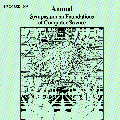We revisit once more the problem of designing an oracle for answering connectivity queries in undirected graphs in the presence of vertex failures. Specifically, given an undirected graph $G$ with $n$ vertices and $m$ edges and an integer $d_{\star}\ll n$, the goal is to preprocess the graph in order to construct a data structure $\mathcal{D}$ such that, given a set of vertices $F$ with $|F|=d\leq d_{\star}$, we can derive an oracle from $\mathcal{D}$ that can efficiently answer queries of the form "is $x$ connected with $y$ in $G\setminus F$?". Very recently, Long and Saranurak (FOCS 2022) provided a solution to this problem that is almost optimal with respect to the preprocessing time, the space usage, the update time, and the query time. However, their solution is highly complicated, and it seems very difficult to be implemented efficiently. Furthermore, it does not settle the complexity of the problem in the regime where $d_{\star}$ is a constant. Here, we provide a much simpler solution to this problem, that uses only textbook data structures. Our algorithm is deterministic, it has preprocessing time and space complexity $O(d_{\star}m\log n)$, update time $O(d^4 \log n)$, and query time $O(d)$. These bounds compare very well with the previous best, especially considering the simplicity of our approach. In fact, if we assume that $d_{\star}$ is a constant ($d_{\star}\geq 4$), then our algorithm improves on the state-of-the-art in every respect, except space. Nevertheless, even our space usage in this case is almost linear. Finally, the data structure that we provide is flexible with respect to $d_{\star}$: it can be adapted to increases and decreases, in time and space that are almost proportional to the change in $d_{\star}$ and the size of the graph.
翻译:暂无翻译




